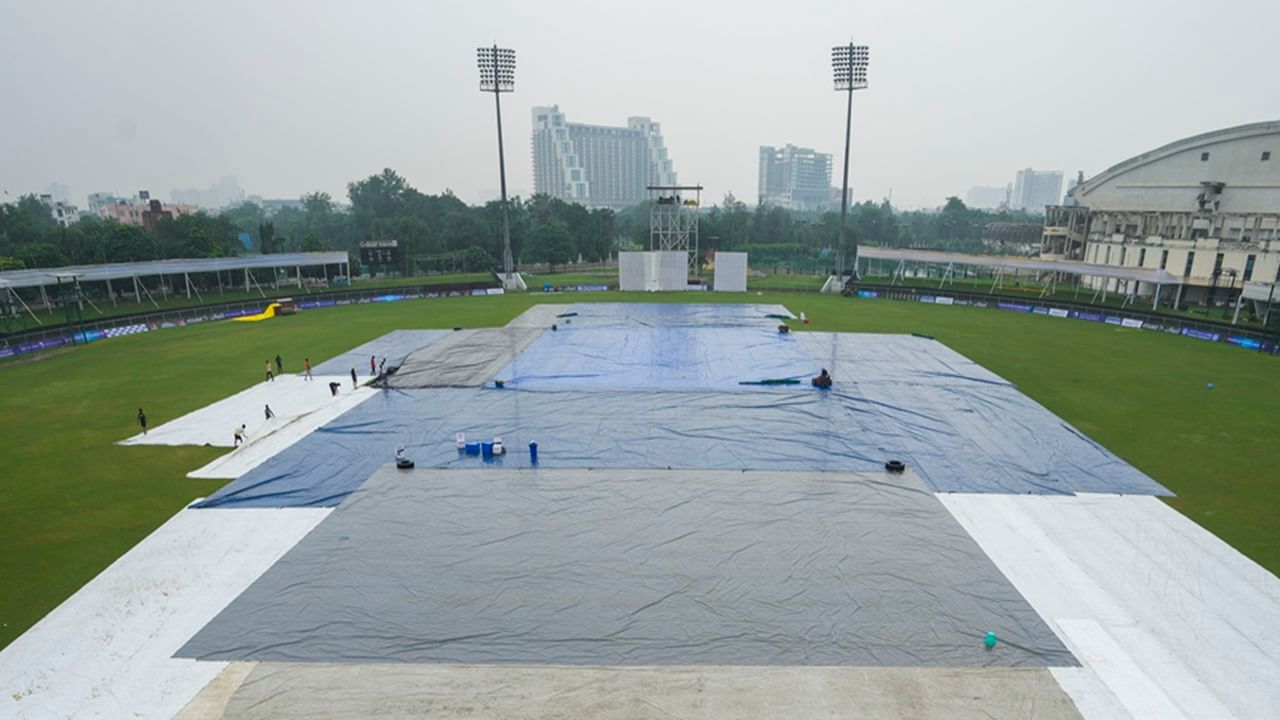The highly anticipated Test match between Afghanistan and New Zealand faced a disappointing start as the first day was completely washed out. Despite the absence of rain on the day of the match, the wet conditions of the Greater Noida stadium rendered the field unsuitable for play. This situation has drawn significant criticism from the Afghanistan Cricket Board (ACB) officials, who expressed their discontent with the stadium’s preparations.
Ground Conditions Spark Outrage
Officials and players from the Afghanistan team were visibly frustrated with the facilities at the Shaheed Vijay Singh Pathik Sports Complex. An upset ACB official commented on the inadequate drainage, noting, “The ground is a mess, and the players are unhappy with the facilities provided here.” This sentiment reflects deep concerns regarding the venue’s ability to host international cricket matches in a professional capacity.
Widespread Wetness Across the Field
Typically, in cricket, only specific areas of a ground become wet after rainfall. However, the situation at the Greater Noida stadium was alarming, with multiple wet patches scattered across the field. Reports indicate that umpires conducted six inspections throughout the day to assess playability, only to find areas of concern around mid-on, mid-wicket, and even several patches within the 30-yard circle. Prominent players from the New Zealand team, including captain Tim Southee and all-rounder Mitchell Santner, took it upon themselves to evaluate the conditions firsthand.
Delayed Intervention with Super Soppers
Compounding the issue, the deployment of super soppers to dry the field was delayed, beginning only after 1 PM. Afghanistan’s coach, Jonathan Trott, expressed dissatisfaction with the delay and the overall ground management, pointing out that this inefficiency not only affected the match but also disrupted practice sessions for both teams. The ground staff had to resort to using table fans to facilitate preparations for Afghanistan’s training.
Revised Schedule and Past Controversies
In light of the circumstances, the toss for the remaining days of play has been rescheduled to 9 AM, with matches starting at 9:30 AM instead of the previously planned 10 AM. Such adjustments indicate the urgency of addressing the ongoing issues at the venue.
It is essential to note that Greater Noida Stadium has not hosted any matches under the Board of Control for Cricket in India (BCCI) since September 2017, following a ban due to match-fixing allegations during corporate matches. The last significant match at this venue was the Duleep Trophy in 2016, leading to concerns about its viability as a host location for future international cricket.
The current scenario serves as a stark reminder of the necessity for improved infrastructure and management in cricket venues, especially when hosting matches at the highest level. Unless these challenges are addressed adequately, it remains uncertain how soon this ground will regain the trust of international cricket associations.












